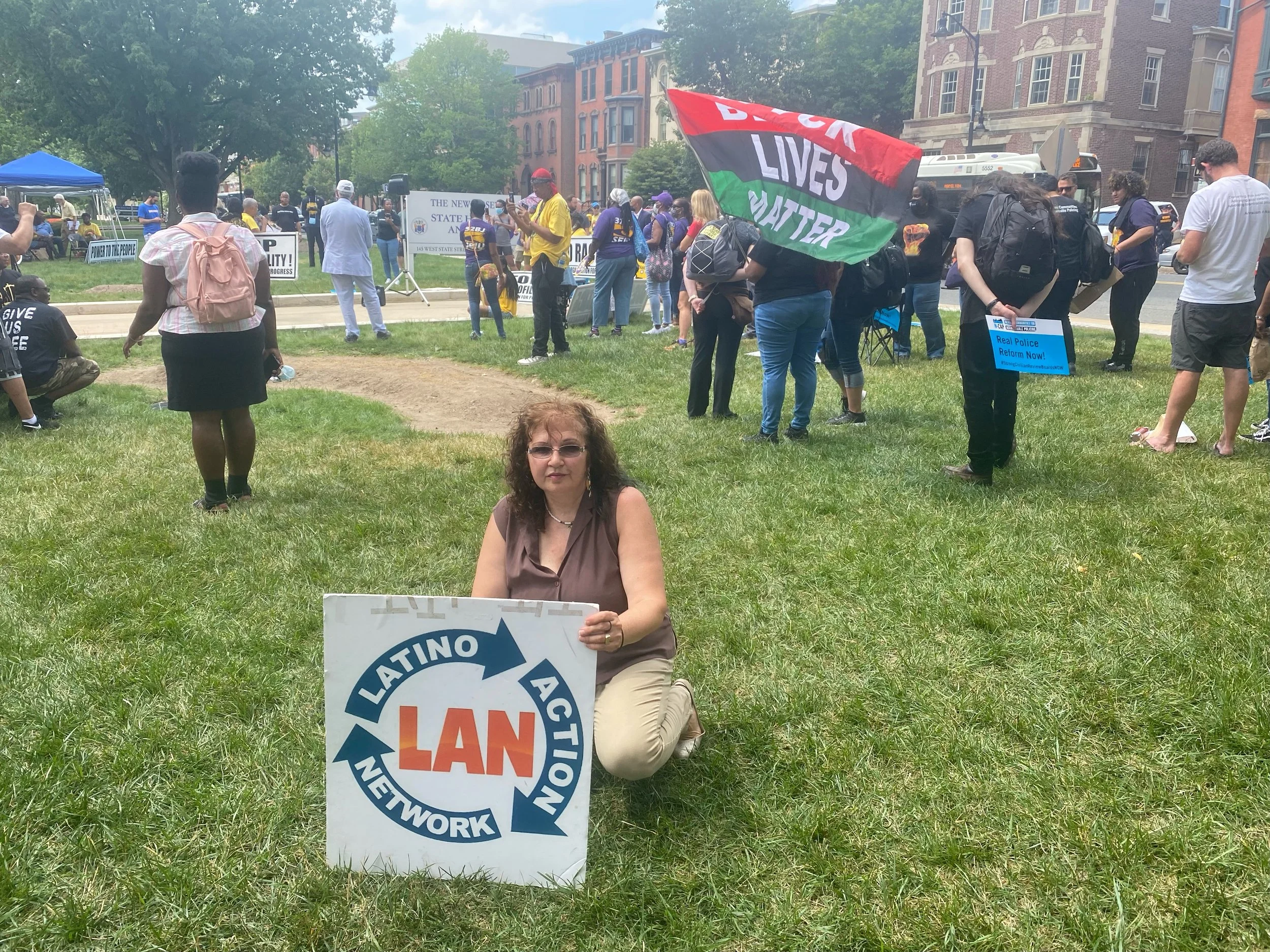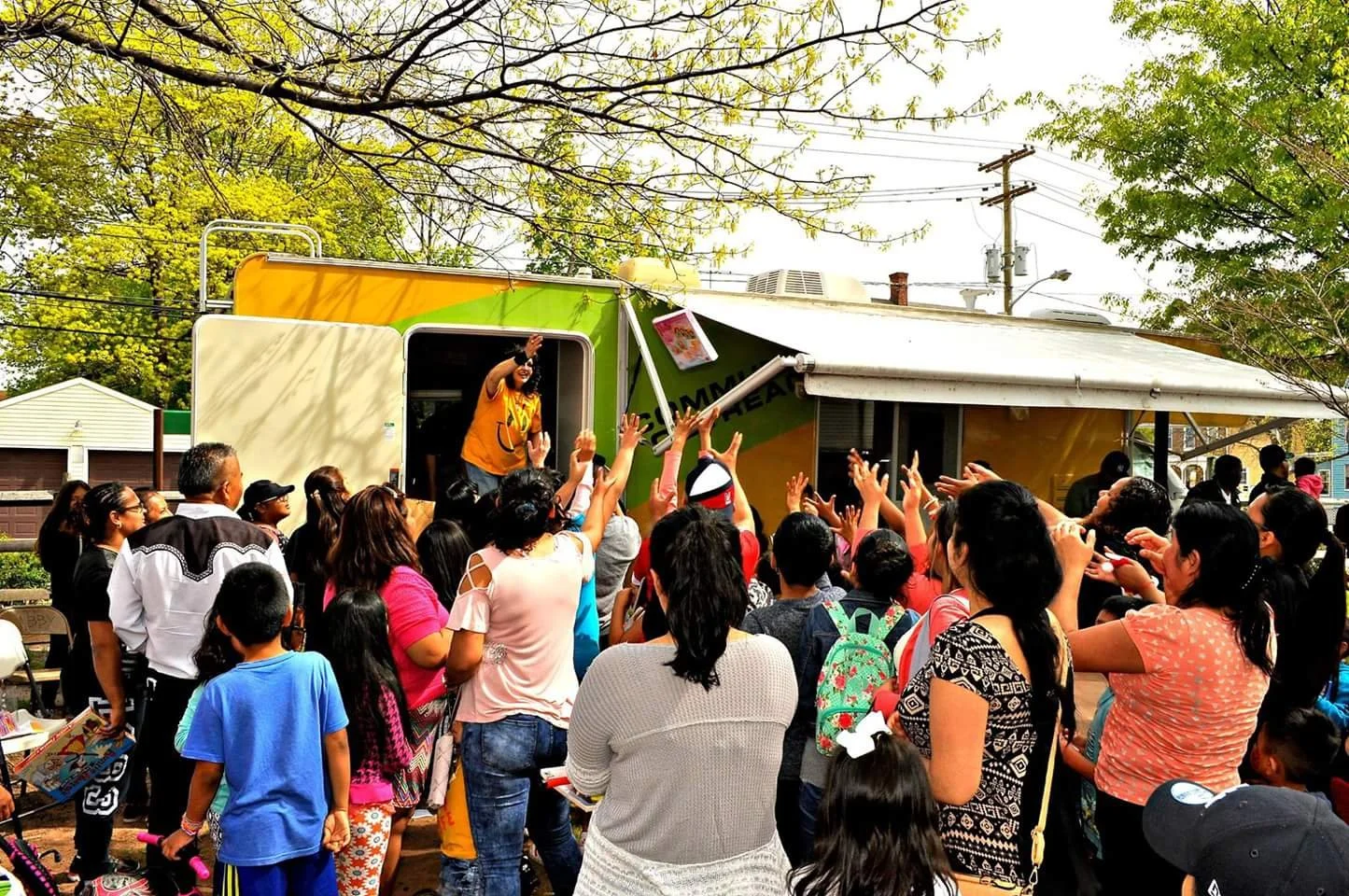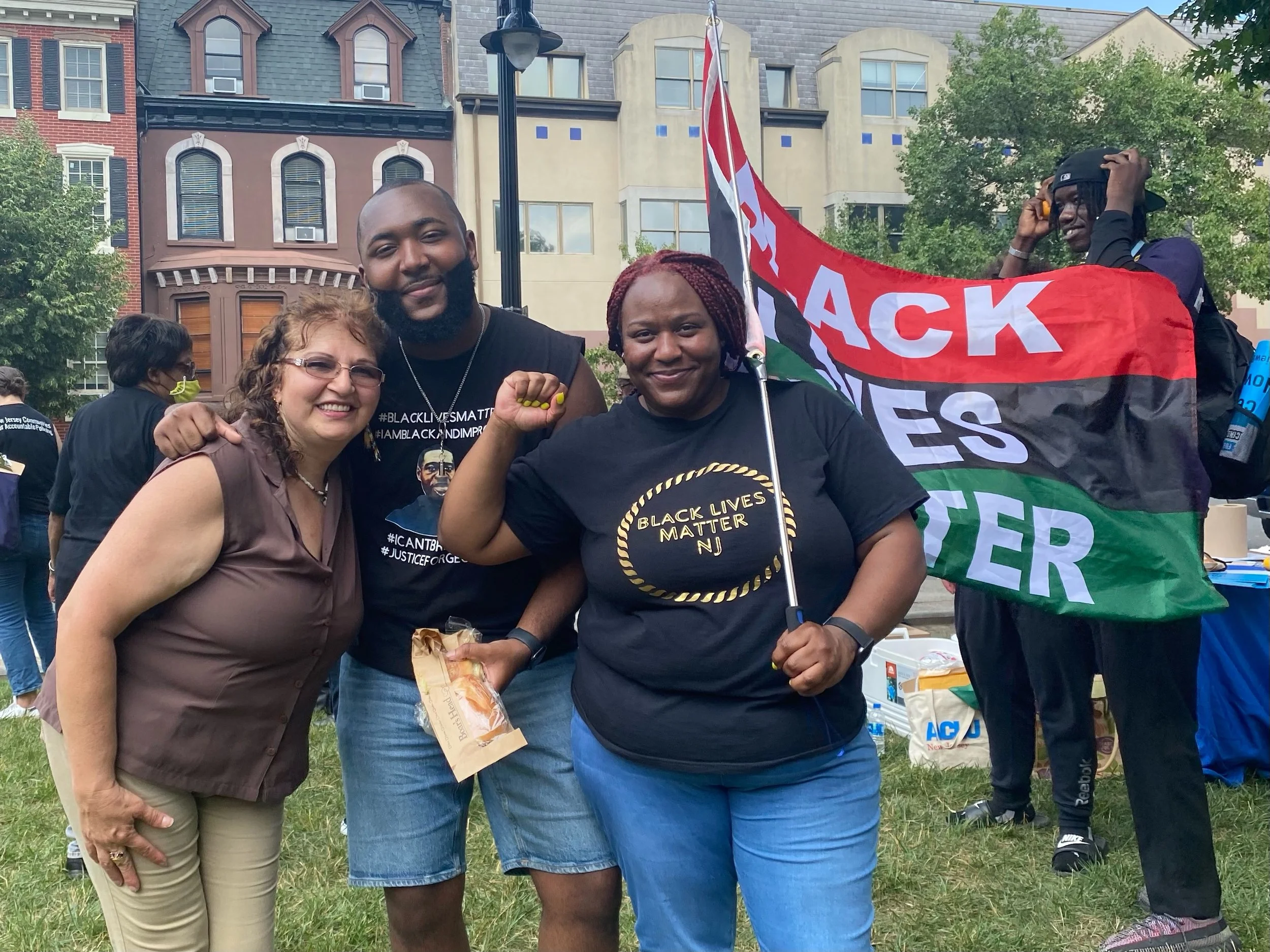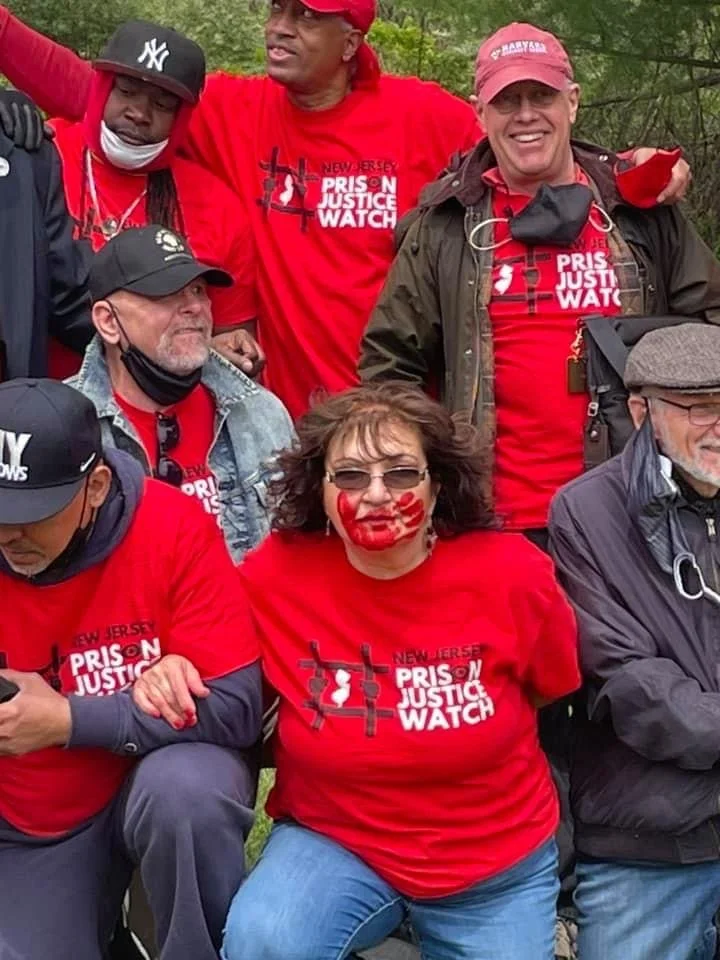“We are because I am”-Why Cuqui Rivera marches
Cuqui Rivera holding a Latino Action Network (LAN) sign at a rally. (Courtesy of Cuqui Rivera)
As a Community DJ, Cuqui Rivera isn't comfortable in front of a room, but she's been forced to become accustomed to being at the frontlines. Rivera, the founder of the Latina Action Network and New Jersey Prison Justice Watch, is a community organizer and Civil Rights advocate. As she's evolved over the years, she said she's come to understand that rallies and activism have purposes. For her, a huge part of it is unity.
Rivera has been participating in marches for decades, so much so that she can't remember her first. But there are two protests she can't shake—the 2020 protests for George Floyd in Highland Park and Somerville. In Highland Park, she recalls plugging her music system up to her soft-top jeep so she could play music as she led the march.
"And it really does stick out in my memory as one that, for me, made a difference not only in the theme of the protests but also in the hearts of the people who showed up—because many protests happen, and people show up because they don't know what else to do," she said. "So, for me, these things are vital to telling, I don't know, John Smith over there, 'your part here, your presence here means something, it means something here, and it means something as you walk away.'"
In Somerville, Rivera witnessed hundreds of protestors block the highway, take a knee and remain silent for nine minutes and 29 seconds, the amount of time former Minneapolis police officer Derek Chauvin knelt on George Floyd's neck. It was a very powerful moment for her as she imagined her life leaving her that way.
Cuqui Rivera waving to a crowd. (Couresy of Cuqui Rivera)
Unity is integral to moments like those. For progress to occur, Rivera said everyone needs to play their part. There are those who need to strap on their boots and head to the streets and those whose path leads to the office buildings—both are important. The main goal is coming together and finding solutions or, as Rivera puts it, "figuring out where we can come a little closer to the middle."
"For me, every single part, every breath is connected to all of us," she said. "That's how I believe things are right, so we all have a part to play."
When it came to the significance of protests, she added that they bridge a gap, "[giving] purpose and meaning to people who are sitting on the porch not knowing what to do when they see these atrocities, which are many." They also bring allies together, young and old, while teaching the upcoming generation elements of leadership, belonging and ownership. But where protestors go wrong, she said, is believing the action ends on the streets.
According to Rivera, everyone likes to "scream and holler," but no one wants to do the dirty work. Everyone has a part to play after they hang up their boots, whether teaching their children or learning more about the mechanics of bringing about progress and change. When given the opportunity to speak, her message is usually the same: "Are you going to complain about it or be about it?"
In her message, an ode to an African proverb, she says, "We are because I am," and that's for everyone to remember that they're integral to the bigger goal—Justice.
"And that means that you don't just say, 'Oh, that was a nice gathering, that was powerful,'" she said. "No, you go home with an obligation and responsibility to carry this message forward. You go home with the responsibility and obligation to learn more about how the mechanics of this works for progress and change, should you so be inclined."
As a core team member for the New Jersey Prison Justice Watch, she's seen a concerted movement get results. In one case, the pressure from the collective of voices inside the state's prison system and ex-prisoners—in coordination with a visit to the state house, public hearings and rallies—resulted in the resignation of the ombudsman at the State of New Jersey Department of Corrections.
"So yeah, you get some stuff done sometimes when you stick together and you keep the pressure on," she said. "The rally's not going to do it on its own. You have to hold people accountable, and you have to have the presence and respect and connection to do so."




